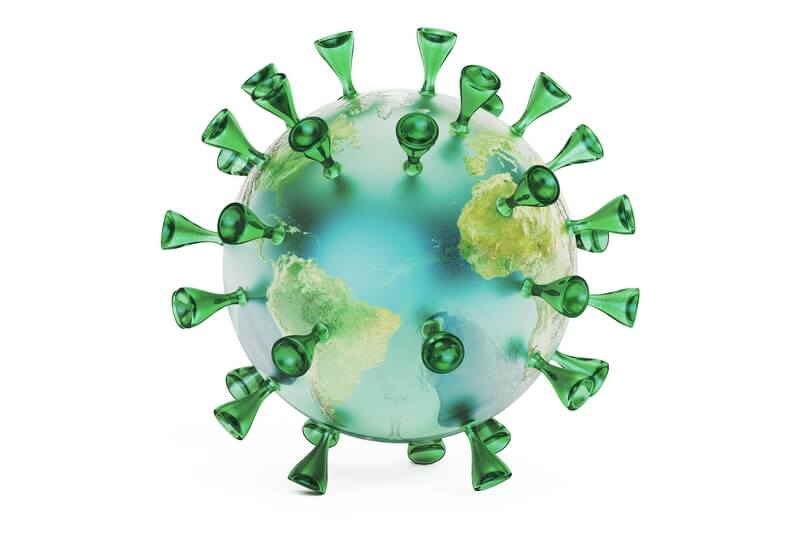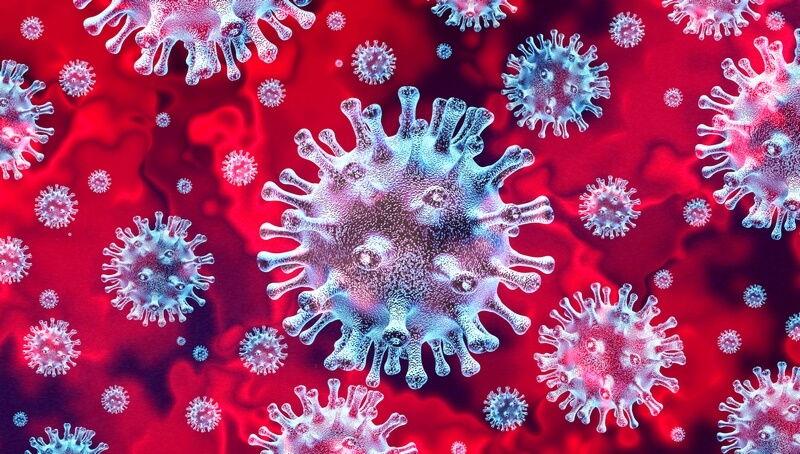
Signs are the Covid-19 will be around for a while
Covid-19, is it the next pandemic? The reported global death toll for the novel coronavirus passed 1,000 people on Monday. Reported totals now exceed the number of SARS cases. Although related to SARS, the coronavirus is new, and health authorities do not fully understand it. So far, the virus is impacting China the hardest, where the outbreak began, but the illness has spread to twenty-eight countries. Today, the World Health Organization (WHO) named the virus Covid-19. The action’s goal is to destigmatize where the virus originated.
The virus has infected over 45,000 people. Scientists say that it could take eighteen months for a vaccine to be available. Regardless, public health authorities across the globe are anticipating that the virus will continue to circulate. Infectious disease outbreaks can last from days to years. Similar coronavirus events had a long tail with the SARS outbreak lasting six months (2002). The MERS outbreak began in Saudi Arabia in September 2012 and continues to infect people.

Experts say these two weeks are key
But will Covid-19 become the next worldwide epidemic? The answer is that it is hard to say. Explaining the outbreak of disease is not easy. From what I am hearing, medical professionals seem to be divided or at least unwilling to call it a pandemic. Yet, some believe we are on the brink. Best practice measures to prevent the spread of the disease are to quarantine and self-isolate individuals for fourteen days.
So, we are in a pivotal window of time where China has taken aggressive measures to try to contain the outbreak and limit the virus from spreading. We are watching to see if the infection takes hold in other countries where it has spread. So far, little human to human transmission has happened outside of China, and that is good news. At the same time, those other countries and businesses have leaped into action to restrict travel or enact work from home policies to mitigate the risk to others. Last, everyone is encouraging good respiratory hygiene and illness prevention practices.
As these measures play out over the next few weeks, we will discover their overall effectiveness. Even if the rate of new cases slows, as they appear to be doing, we may still risk new waves of contamination. Many Chinese have gone back to work after an extended Lunar New Year break, but reports are that many remained home. Additionally, not all schools in China have reopened, so we are on the alert to see what happens. Along with this, some carriers may still be asymptomatic for close to two weeks. Finally, some are predicting that if we do not see a spike in new cases this week, that it may be less virulent. So, Covid-19, is it the next pandemic? Only time with tell.

It's smart to expect this outbreak to continue
Having been involved with the response to H1N1 with my state’s public health emergency preparedness office, I expect that this outbreak will continue for a while. H1N1 was a flu virus and was the first worldwide pandemic in the prior 40 years. That influenza outbreak lasted for eighteen months from April 2009 to August 2010.
I am not seeing anything that makes me believe that the Covid-19 outbreak of disease will not last at least six months and, due to its sheer numbers, will probably continue into the Fall. When I taught about the 1918 Pandemic to my students, I stressed that the Spanish flu lasted 15 months in a time when global travel was not prevalent as it is now. There were three waves of the outbreak reported for the 1918 flu, with the last one staring in the winter and ending in the summer of 1919. So, the conservative side of me says that we are in for a protracted event. It would be great to be wrong on this guess!

The best defense is not to get sick
When the virus dissipates, the loss of lives and the impact on those infected will be significant. Already, the effect on the Chinese is severe, and I will be interested to see how they recover. I cannot imagine the suffering that is taking place there and to others in nations across the globe. Even when the virus epidemic subsides, we will likely be dealing with long-term social and economic ramifications.
Some experts, like Dr. Beth Cameron, are calling the alarm bell, saying that nations are not ready for a pandemic. I don’t want to panic anyone, but I believe she is right. An epidemic could be the next mass-casualty event. No country is ever fully prepared for a pandemic. The reason for this is because the new virus is entering the human population, and we are unfamiliar with it, so do not know how to treat it. Additionally, the readiness of health care infrastructures varies widely worldwide. Dr. Cameron is right in her overall assessment of preparedness.
Interestingly, although there were no antibiotics or vaccines to fight the 1918 flu pandemic, many of the same controls are useful today. Non-pharmaceutical interventions are still as key to limiting the effects of Covid-19. Measures such as good personal hygiene, using disinfectants, social distancing, isolation, and quarantine are our best first defense. So, we all need to be vigilant at this critical time and prepare on a personal, community, national, and global level. The best outcome is to limit disease spread.

Is a pandemic inevitable?
You may be asking yourself, is the news all doom and gloom, then? I do not think so. China’s acted decisively in recent weeks, and the mass quarantine of its citizens may have quelled a more extensive outbreak. Also, many health systems are relatively robust, and the WHO, along with international support, is working to address the gaps. These efforts are reasonable, but risks remain. There are so many variables to this event, not the least of which is the virus itself as it mutates during transmission from person to person.
My suggestion is that you keep a positive attitude, but make sure you are ready for disaster. Do your best not to get sick, but do not let this event stop you or your family from living life. Most businesses are taking similar rational approaches based on their pandemic and infectious disease plans. Some believe that Covid-19 is spreading more like the highly contagious flu virus that a coronavirus. So, get prepared if you have not already. The tricky part of this event is all of the unknowns, and I sincerely hope we all live through it.
If you are interested in reading more on Covid-19 preparedness, I invite you to check out my recent blogs: Coronavirus-Prepare For Supply Chain Impacts and Coronavirus-Social Isolation Tips.
